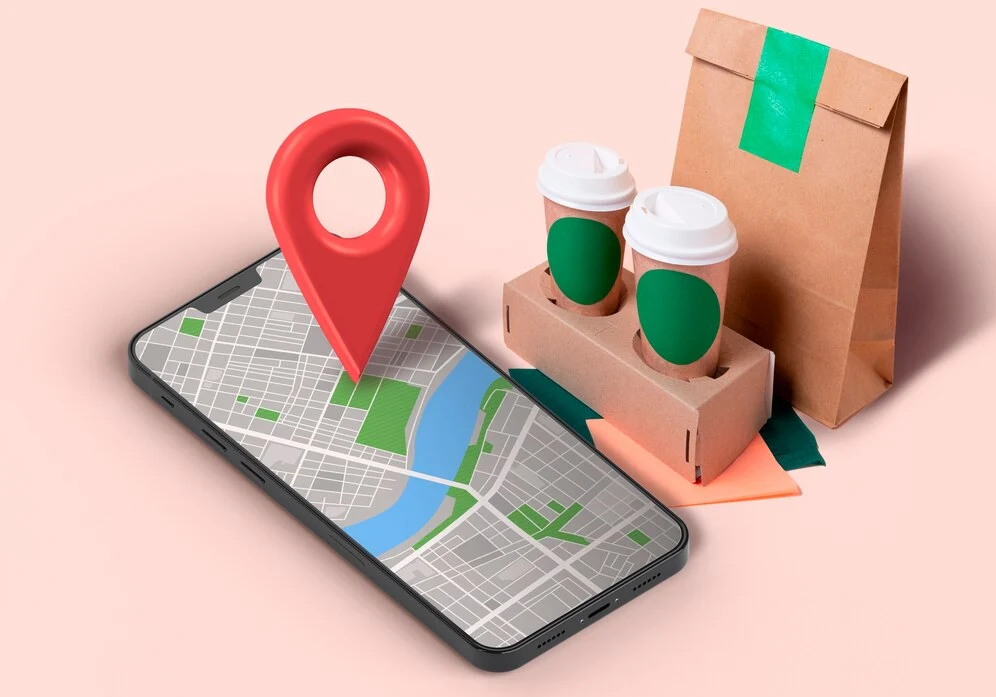Local SEO is a crucial aspect of digital marketing for businesses that serve a specific geographic area. With the rise of voice search and mobile usage, local SEO has become even more important for businesses to reach their target audience.
In this article, we will provide you with an essential local SEO checklist for 2024 to help your business stay ahead of the competition and rank higher in local search results.
Why Is Local SEO Important?
Before we dive into the local SEO checklist, let’s explore the compelling reasons why local SEO is crucial for businesses with a physical location or serving a specific geographic area. In today’s digital age, consumers rely heavily on search engines to find local businesses.
Targeting Local Customers

Local SEO allows businesses to target customers in a specific geographic area. This is especially important for small businesses that rely on local customers for their revenue. By optimizing for local search, businesses can attract more local customers and increase their sales.
Increased Visibility in Local Search Results
With the rise of voice search and mobile usage, more and more people are using search engines to find local businesses. By optimizing for local SEO, businesses can increase their visibility in local search results and attract more potential customers.
Better User Experience
Local SEO also focuses on providing a better user experience for customers. By optimizing for local search, businesses can ensure that their contact information, business hours, and directions are easily accessible to potential customers. This makes it easier for customers to find and contact the business, leading to a better user experience.
Local SEO Checklist for 2024
Now that we understand the importance of local SEO, let’s take a look at the essential local SEO checklist for 2024.
Claim Your Google My Business Listing

Google My Business (GMB) is a free tool that allows businesses to manage their online presence on Google. It is essential for local SEO as it helps businesses appear in Google’s local search results and on Google Maps.
To claim your GMB listing, you need to create a Google account and verify your business. Once verified, you can add important information such as your business name, address, phone number, website, and business hours. It is crucial to keep this information up-to-date to ensure that potential customers can easily find and contact your business.
Optimize Your GMB Listing
Once you have claimed your GMB listing, it’s time to optimize it for local SEO. Here are some tips to help you optimize your GMB listing:
- Choose the right categories for your business
- Add high-quality photos of your business
- Encourage customers to leave reviews
- Respond to reviews, both positive and negative
- Use keywords in your business description
- Add a local phone number instead of a toll-free number
- Include your business hours and holiday hours
- Add a link to your website and social media profiles
Optimize Your Website for Local SEO

Your website is a crucial part of your local SEO strategy. Here are some tips to help you optimize your website for local search:
- Include your business name, address, and phone number (NAP) on every page of your website
- Use schema markup to help search engines understand your business information
- Create location-specific landing pages for each of your business locations
- Use local keywords in your website content and meta tags
- Optimize your website for mobile devices
- Improve your website’s loading speed
- Use high-quality images and videos on your website
- Make sure your website is user-friendly and easy to navigate
Build Local Citations
Local citations are online mentions of your business name, address, and phone number. These citations help search engines verify the accuracy of your business information and improve your local search rankings.
To build local citations, you can list your business on online directories, review sites, and local business associations. Make sure to keep your business information consistent across all platforms to avoid confusion and improve your local SEO.
Get Listed on Local Directories

In addition to building local citations, it is also essential to get listed on local directories. These directories are specific to your geographic area and can help your business appear in local search results.
Some popular local directories include Yelp, Yellow Pages, and Angie’s List. Make sure to claim your business listing on these directories and keep your information up-to-date.
Encourage Customer Reviews
Customer reviews play a significant role in local SEO. They not only help potential customers make a decision but also impact your local search rankings.
Encourage your customers to leave reviews on your GMB listing, social media profiles, and other review sites. Respond to reviews, both positive and negative, to show that you value your customers’ feedback. This is one of the most important items on the local SEO checklist
Use Local Keywords in Your Content
Using local keywords in your website content and meta tags can help improve your local search rankings. Conduct keyword research to identify relevant local keywords and use them in your website content, meta titles, and descriptions.
Make sure to use these keywords naturally and avoid keyword stuffing, which can negatively impact your SEO.
Optimize Your Website for Voice Search
With the rise of voice search, it is crucial to optimize your website for voice search queries. Here are some tips to help you optimize your website for voice search:
- Use natural language in your website content
- Answer common questions related to your business in your website content
- Use long-tail keywords in your website content
- Optimize your website for mobile devices
- Improve your website’s loading speed
Leverage Social Media for Local SEO
Social media can also play a role in your Local SEO Checklist. Make sure to create and optimize your social media profiles, especially on platforms that are popular in your geographic area.
Use local hashtags and geotags in your social media posts to increase your visibility in local search results. Engage with your followers and encourage them to leave reviews on your social media profiles.
What are the Local SEO Tips?
When it comes to local SEO, there are several tips that can help businesses improve their local search rankings and attract more local customers:
- Claim and optimize your Google My Business listing to ensure accurate and up-to-date information about your business is available online.
- Optimize your website for local SEO by including your business name, address, and phone number on every page, using schema markup, creating location-specific landing pages, and using local keywords.
- Build local citations by listing your business on online directories and review sites to improve your local search rankings.
- Get listed on local directories specific to your geographic area, such as Yelp, Yellow Pages, and Angie’s List.
- Encourage customer reviews on platforms like Google My Business, social media, and review sites to enhance your online reputation and local search rankings.
- Use local keywords in your website content and meta tags to target local search queries effectively.
- Optimize your website for voice search by using natural language, answering common questions, and optimizing for mobile devices.
- Leverage social media for local SEO by creating and optimizing profiles, using local hashtags and geotags, and engaging with followers to boost visibility in local search results.
By implementing these local SEO tips, businesses can enhance their online presence, attract more local customers, and stay ahead of the competition in 2024.
How Do I Track Local SEO?
To track your local SEO performance, you can use various tools and methods to monitor your progress and make necessary adjustments. Here are some ways to track local SEO:
1. Google My Business Insights: Utilize the insights provided by Google My Business to track how customers find your business listing, where they are located, and what actions they take.
2. Local SEO Tools: Use tools like SEMrush, Moz Local, BrightLocal, or Whitespark to track your local search rankings, monitor local citations, and analyze your local SEO performance.
3. Website Analytics: Monitor your website traffic, user behavior, and conversions related to local search queries using tools like Google Analytics.
4. Rank Tracking: Keep track of your local search rankings for specific keywords related to your business and geographic area using rank tracking tools.
5. Local Listings Monitoring: Regularly check the accuracy and consistency of your business information across online directories and review sites to ensure your NAP (Name, Address, Phone number) data is correct.
By tracking these metrics and using the insights gained, you can optimize your local SEO strategy, improve your online visibility, and attract more local customers to your business.
How to Do Local SEO Marketing
To effectively implement local SEO marketing strategies, businesses can follow these key steps:
- Google My Business Optimization: Claim and optimize your Google My Business listing with accurate information about your business, including address, phone number, business hours, and services offered.
- Local Keyword Research: Identify and target relevant local keywords that potential customers are likely to use when searching for businesses in your area.
- On-Page Optimization: Optimize your website content with local keywords, meta tags, and schema markup to improve visibility in local search results.
- Local Content Creation: Create location-specific content such as blog posts, landing pages, and testimonials that resonate with your local audience.
- Local Link Building: Build relationships with local businesses, organizations, and influencers to earn backlinks and improve your website’s authority in local search.
- Mobile Optimization: Ensure your website is mobile-friendly to provide a seamless user experience for mobile users, which can positively impact your local search rankings.
- Online Reviews Management: Encourage customers to leave reviews on platforms like Google My Business and respond to reviews promptly to build trust and credibility with potential customers.
- Local Social Media Engagement: Engage with your local community on social media platforms by sharing local events, promotions, and relevant content to increase brand awareness and drive local traffic to your website.
By incorporating these local SEO marketing tactics into your overall digital marketing strategy, you can enhance your online visibility, attract more local customers, and outperform your competitors in the local search landscape.
Conclusion
Local SEO is crucial for businesses that serve a specific geographic area. By following this essential local SEO checklist for 2024, you can improve your local search rankings and attract more local customers. Make sure to regularly review and update your local SEO strategy to stay ahead of the competition and achieve your business goals.
How do I audit local SEO?
Use free tools from Google Search Console and Google My Business to check listing accuracy, identify keyword ranking, and analyze backlinks.
why is local seo important
It increases your visibility in local search results, attracting nearby customers who are more likely to convert.
What is map SEO?
Optimizing your online presence to appear prominently in Google Maps results, the local map pack displayed for relevant searches.
What are the tasks for local SEO? "
Claim and optimize your Google My Business listing, manage citations (NAP consistency across directories), build high-quality backlinks, create locally relevant content, and encourage positive reviews.





